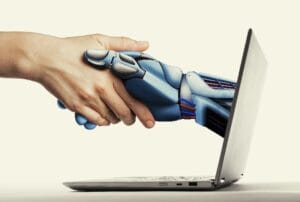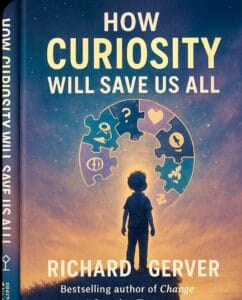
At the start of 2024, I did some work for one of the ‘Big Four’ accountancy firms. I was working with the new intake of graduates, as part of their induction programme. Specifically, we were exploring self-leadership, innovation and change.
Over coffee and prior to my first involvement, I asked the Head of Global Recruitment what she and her team were finding most challenging about the latest generations coming through the system. Her response was fascinating and has led me to thinking deeply about the world we now inhabit and the one they are evolving into.
“Relationships,” She exclaimed, “they really struggle with human relationships.”
These remember, are arguably the brightest and the best, selected from the world’s top universities.
She went on to explain that whilst they were incredibly smart, “Put them in front of a computer with a task to complete or a problem to solve and they are away.”
But…
And here was her challenge, “The minute you ask them to work directly with a client, face to face, to build a relationship and to unpick the emotional and human challenge from the technical or the digital, they really struggle.”
I am not sure that this was a total surprise to me and something that those of us around education, working with young people day in day out, could have identified some time ago.
We know that the 2020 pandemic changed everything and has potentially changed education for a generation, in terms of mental health problems, language acquisition and the ability for young people to form meaningful relationships and routines but COVID-19 and the impact of the measures around it were, to my mind an accelerant of the world in the digital age.
At a different meeting, a decade ago, I had breakfast with a man called Nolan Bushnell, a name that may not mean much to some, but he has had a profound impact on the world as it is today. He was the founder of Atari and was the first person to employ Steve Jobs and Steve Wozniak. He left the company in 1979, having sold it to Warner Communications.
Over our eggs and bacon, I asked him what he was focusing on at the time of our meal, he didn’t even break for a breath,
“Artificial Intelligence,”
He went on to explain that he was focusing entirely on that, expressing with some consternation, that he couldn’t understand why the world wasn’t taking more notice of it, especially in education and around the future for young people.
And here we are a decade on, as we juggle with the impact of emergent AI and how it is impacting our academic programmes.
Whilst the technology is still, in some experts’ eyes no more than in its toddler phase, it is already having a profound impact on us and our lives. It is why, whether we understand it or not, feel nervous of it, or simply try to hide our heads in the sand, hoping that it will bypass us, we need to get serious now.
As educators, we need to look beyond just the curricular ramifications of the digital world and explore the challenges around human relationships, friendships and even intimacy that AI represents.
We know that academic performance, will always be at the centre of what we do, but without the pivotal work we do around relationships and human development, our children will be more vulnerable than ever to their complex future.
If the ‘Big Four’ are saying that it is the ‘soft stuff’, human relationships, that is defining success and failure and that technology is having an increasingly disruptive impact, we have to think hard.
We have for a number of years, seen our young people inhabit increasingly virtual spaces, my son, learnt to speak German by playing a soccer game on his game console with friends he met online.
My daughter met her fiancé on a dating app over eight years ago but…
The tech is evolving way beyond that. We have already seen the emergence of AI companions like Replika a chatbot designed to provide people with emotional support, its algorithms learning over time, and interaction, to provide increasingly personal response to enhance a genuine emotional connection.
There are also emerging on to the market, and perhaps more controversially, lifelike humanoid robots that offer romantic and physical companionship.
Ironically, we are living in a world where social isolation and loneliness are increasingly recognised as major health risks, despite the digital connectedness. Japan for example, a highly tech integrated country, has seen an explosion in solitary lifestyles, and the mental health challenges associated to that.
Whilst I can see that there are positives to elements of AI companionship, I think it highlights just why, we need to be more explicit about putting emotional development front and centre of what we do.
I once asked Eric Schmidt, former Chairman of Google whether he saw a time where technology would replace the teacher. His answer was immediate and unequivocal,
“No, never.” Tech, he explained, “was an incredible tool, a catalyst for change and for leading life differently,” however, “education has always been and will always be first and foremost about the development of the human being and for that to happen healthily and effectively, you will always need high levels of human interaction.”
Eric’s words echo in my thinking regularly and actually with greater resonance.
We cannot demonise or avoid the digital world, but we have to embrace it, if we don’t, we will simply be amplifying the complexity of navigating the future for our children and we will enhance the idea that the generations have never been further divided.
We need to work with our young people and with the Tech sector in order to help the next generation understand both the advantages and the limitations of AI and in particular the dangers of using it as a substitute for human relationships. As Professor Neil Sahota, UN Artificial Intelligence Advisor said recently,
“In this new era of companionship, we must tread carefully, ensuring that our pursuit of innovation does not lead us away from the essence of what makes us inherently human: our capacity for genuine connection and empathy.”



